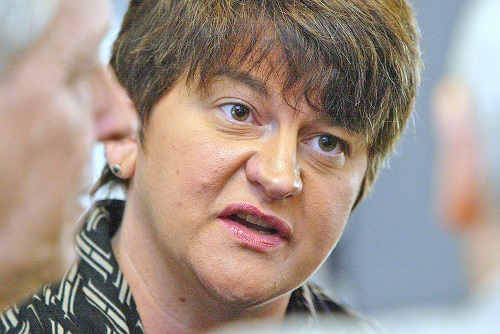WHY did those who voted for the Good Friday Agreement do so? The short answer is we don’t know. Nobody can see inside another person’s head, and even if they tell you their reasons for doing something, they may not be telling the truth. But there are a number of reasons that probably featured in the thinking of many people as they entered the polling both nearly 20 years ago.
1. Peace. We didn’t need the British authorities to tell us that they weren’t capable of defeating the IRA, and it was fairly obvious that the IRA wasn’t going to defeat the British Army. Stalemate, with little prospect but the stubborn obscenity of more deaths.
2. Political progress. The 1981 hunger-strike had shown the possibilities of republican progress at the political level. The GFA presented further possibilities, with Britain declaring its intention to withdraw should that be the will of the north’s people. This acceptance that constitutional change was a matter for the Irish people came with a price: Articles 2 and 3 in the Irish constitution, claiming jurisdiction over all Ireland, including the north, had to be abandoned. For some, this was too much. For most, it was a pill worth swallowing.
3. In this last matter – the repeal of Articles 2 and 3 – we must remember that the south had its own simultaneous referendum. It didn’t vote on the same motions as we in the north. The south was asked to relinquish Articles 2 and 3, and in return there would be peace in the north. The overwhelming majority voted for that. Was the relinquishing of Articles 2 and 3 a bitter pill for southern voters? Frankly I doubt it. Many in the south had been taught to see northern republicans and nationalists as an angry, confrontational bunch, prone to irrational violence. Who wouldn’t want to put space between themselves and such people?
Significant
The post-GFA goal for Sinn Féin and nationalists generally was to win over the unionist community, or a significant number of them, to the value of an independent Ireland. With this in mind, both Sinn Féin and the SDLP have for the most part acted with commendable fairness and friendliness. It was said that the DUP and Sinn Féin, if they met in a Stormont corridor or at an adjacent Stormont urinal, wouldn’t speak to each other. Not so. The DUP wouldn’t do the smallest of small talk; Sinn Féin were happy to talk about anything. But as with tangoing, it takes two to hold a conversation.
In more recent years, I’m told, only the most conservative of DUP politicians (yes, Virginia, ‘conservative’ is a diplomatic word) maintain this stony-faced silence. Which is progress. In councils where there is a nationalist/republican majority, major roles such as that of mayor are rotated, giving unionists positions they would not hold if nationalists/republicans had taken the spoils their numbers entitled them to.
Has this outreach worked? Or has, for example, Martin McGuinness meeting with the queen melted unionist frostiness? If it has, they’re not letting on: we have Martin McGuinness’ word that not a single unionist politician congratulated him on his royal encounters. The same applies, with knobs on, for Gerry Adams’ meeting with Prince Charles.
So nearly 20 years after the signing of the GFA, are there signs that the policy of reconciliation has worked? Let’s be honest: the answer is No. Arlene Foster keeps snuffing out any suggestion, whether from Enda Kenny or Martin McGuinness, that there should be joint action by north and south on issues such as Brexit or NAMA. BBC Radio Ulster/Raidió Uladh’s Talkback callers such as ‘George from the Shankill’ make it clear that unionist thinking hasn’t shifted a millimetre since 1998.
What to do? Perhaps a brief experiment at council level might provide unionism with a wake-up call. Those councils which have a nationalist majority could, for a 12-month period, follow the example of unionist-dominated councils and help themselves to the various positions of authority in the council. When unionist politicians complained about such treatment, it could be pointed out to them that this was the flip-side of what unionist councils have been doing for years.
It might sound like a throwback to the past, but it deserves consideration. There are few things more instructive than having another person’s shoes strapped onto your feet and being forced to walk a mile.






